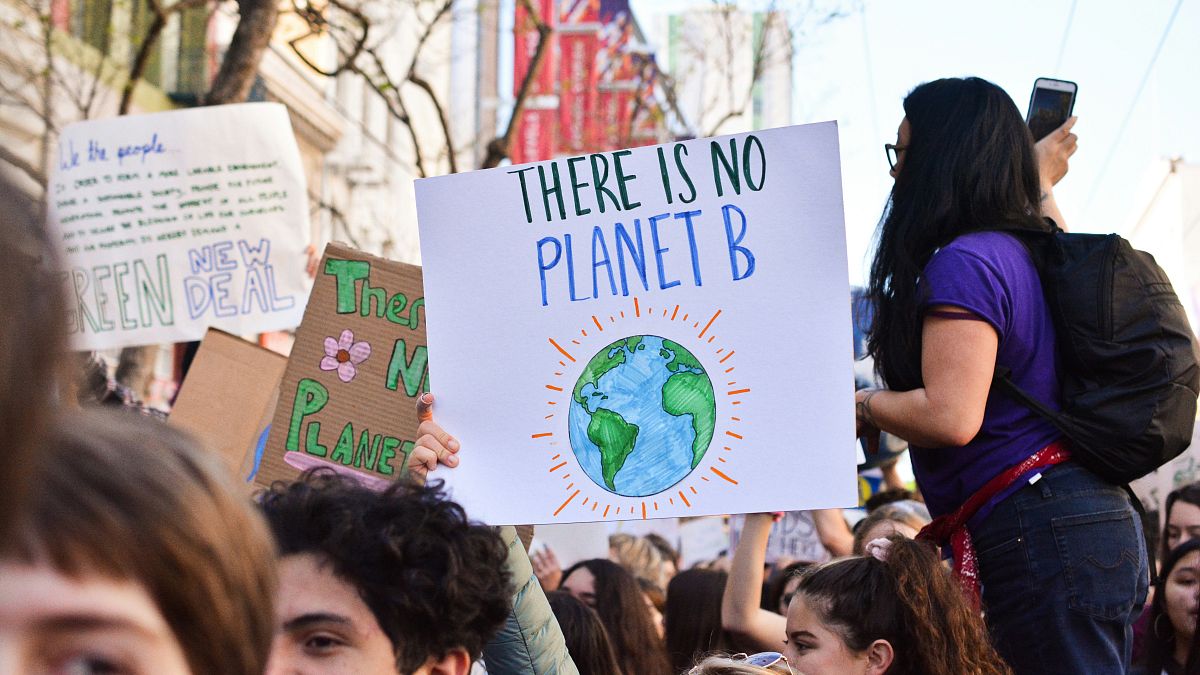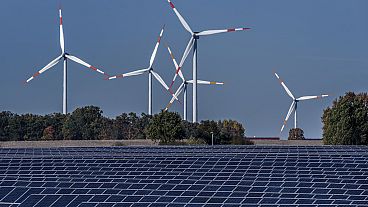Some Western nations are using old legislation or enacting harsh new laws to restrict the right to peaceful protest and impose disproportionate penalties, a report warns.
Governments in democratic countries in Europe and the global north are using overly punitive measures to crack down on environmental activists, according to a new report.
Climate Rights International released a report and video documenting the “increasingly harsh, overly broad and vague criminal laws” used against climate protesters and activists.
The organisation says authorities in countries like Germany, the United Kingdom and France are imposing lengthy prison sentences, engaging in preventive detention and filing criminal charges for trivial offences.
The 70-page report demonstrates how, in cracking down on climate activists, governments are violating their legal commitments to protect basic rights to freedom of expression, assembly and association.
European countries are ‘undermining civil liberties’ of climate protesters
Climate Rights International’s report ‘On Thin Ice: Disproportionate Responses to Climate Change Protesters in Democratic Countries’ documents the increasingly heavy-handed treatment of climate protests in Australia, Germany, France, the Netherlands, New Zealand, Sweden, the United Kingdom and the United States.
“You don’t have to agree with the tactics of climate activists to understand the importance of defending their rights to protest and to free speech,” says Brad Adams, Executive Director at Climate Rights International.
“Instead of jailing climate protesters and undermining civil liberties, governments should heed their call to take urgent action to address the climate crisis.”
The escalating impacts of climate change and frustration with government inaction are fuelling protests, Climate Rights International said.
Concerned citizens are using the right to peaceful protest, including civil disobedience - the centrepiece of the suffragette, anti-colonial, civil rights and anti-apartheid movements - as a way to raise awareness and press for action.
“The fact is that climate activism is not something you’re born into, but it’s something you stand up to do no matter where you are in your life,” climate activist Luisa Neubauer told Climate Rights International.
“And I would say from all the years of activism and for all the thousands of people I’ve spoken with, the one really most powerful answer to desperation is action.”
Climate activists given ‘unprecedented’ prison sentences for nonviolent protest
Under international law, countries must respect and protect the fundamental rights to freedom of assembly, expression and association.
Rather than protecting these rights, some Western nations are using old legislation or enacting harsh new laws to restrict the right to peaceful protest and impose disproportionate penalties, according to the report.
In the United Kingdom, five protesters were given unprecedented prison sentences for conspiring to cause a public nuisance on the M25 motorway that encircles London.
Daniel Shaw, Louise Lancaster, Lucia Whittaker De Abreu, and Cressida Gethin received four years in prison while Roger Hallam received five years, thought to be the longest sentence ever given in the UK for nonviolent protest.
In Germany, Winfried Lorenz received 22 months in prison without parole for his participation in a sit-in blockade. It is believed to be the longest prison sentence ever imposed in Berlin against a peaceful climate protester.
In the Netherlands, Sieger Sloot, a Dutch actor and activist, encouraged his followers on social media to join a peaceful protest in the Hague that involved blocking a roadway.
The police arrested him before the protest even took place and prosecuted him for the felony of sedition.
In some cases, climate protesters are being prohibited from discussing the motivations behind their actions, undermining the right to a fair trial.
Giovanna Lewis and Amy Pritchard, who were arrested and charged after blocking a roadway in central London on 25 October 2021, were ordered not to mention their motivations in their closing statements.
They were sentenced to seven months in prison for contempt of court when they identified the ongoing climate crisis as the reason for their actions.
Governments are also targeting climate advocacy groups, Climate Rights International reports. In June 2023, the French government ordered the dissolution of environmental collective Soulèvements de la Terre - an order that was later overturned by courts.
In May 2024, five members of Last Generation in Germany were charged with “forming a criminal organisation”, under section 129 of the German criminal code. It is believed to be the first time a non-violent protest group has been charged under that section of the law.
‘Governments should see climate protesters as allies not criminals’
In its report, Climate Rights International calls on governments to reverse course and amend or repeal laws that target peaceful protesters.
“Governments should see climate protesters and activists as allies in the fight against climate change, not criminals,” says Adams.
“The crackdown on peaceful protests is not only a violation of their basic rights, it can also be used by repressive governments as a green light to go after climate, environmental, and human rights defenders in their countries.”















